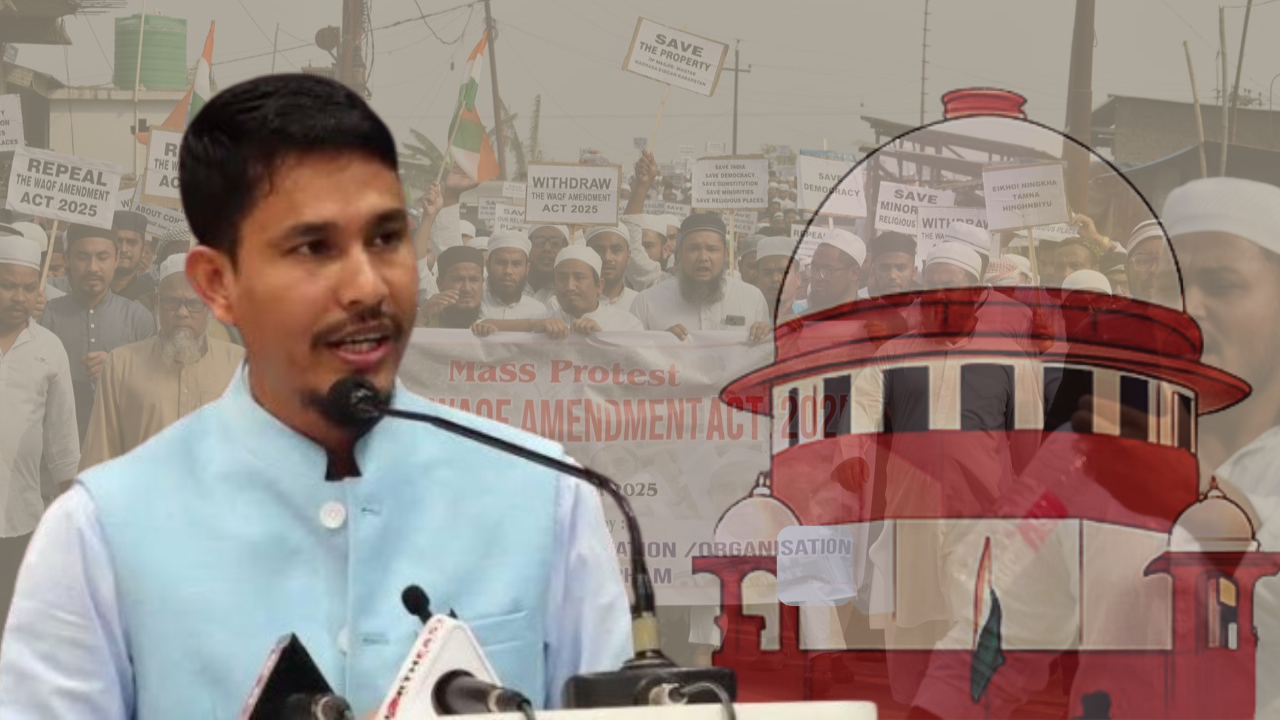Supreme Court to Hear Key Petitions Challenging Waqf (Amendment) Act, 2025 on April 16
New Delhi, April 15: The Supreme Court is set to hear a batch of crucial petitions tomorrow challenging the constitutional validity of the Waqf (Amendment) Act, 2025. A bench headed by Chief Justice of India Sanjiv Khanna and Justice Sanjay Kumar will preside over the matter. While ten petitions are listed for hearing, over 15 have been filed by political leaders, religious institutions, NGOs, and states.
The Waqf (Amendment) Act, 2025, passed by Parliament on April 4 and receiving Presidential assent on April 5, came into effect on April 8 following a notification by the Central Government. The Act has been met with stiff resistance, particularly from sections of the Muslim community, with many alleging it infringes upon their religious and constitutional rights.
Key Petitioners in the Case
Petitions have been filed by several Members of Parliament and legislative assemblies, including AIMIM MP Asaduddin Owaisi, AAP MLA Amanatullah Khan, Congress MP Mohammad Jawed, RJD MPs Manoj Kumar Jha and Faiyaz Ahmad, AITC MP Mahua Moitra, SP MP Zia Ur Rehman, and Manipur MLA Sheikh Noorul Hassan, among others. Notably, even NDA-aligned leaders like Sheikh Noorul Hassan have challenged the amendments.
Grounds of Challenge
- Commonly contested provisions include:
- Omission of “waqf by user”
- Inclusion of non-Muslim members in Waqf boards
- Limiting women members to two
- Mandatory 5-year experience as a practising Muslim to create waqf
- Dilution of “waqf-alal-aulad”
- Renaming the Act
- Application of the Limitation Act
- Invalidating waqfs over ASI-protected monuments
Restrictions in Scheduled Areas
Petitioners argue that these provisions violate Articles 14, 25, 26, 29, and 300A of the Constitution, which safeguard equality, religious freedom, minority rights, and property rights.
Religious Bodies and NGOs Join Legal Challenge
Islamic bodies such as the All India Muslim Personal Law Board, Jamiat Ulema-i-Hind, and Samastha Kerala Jamiatul Ulema have raised serious concerns over what they term a marginalization of the Muslim identity. NGOs like the Association for Protection of Civil Rights and All India Association of Jurists are also part of the legal battle.
Prominent religious figures such as Mohamed Maqsoon Imran, the chief imam of Bengaluru’s Jamia Masjid, have also approached the apex court, seeking a complete rollback of the amendment.
Political Parties Oppose the Act
Several national and regional political parties including the Indian Union Muslim League, CPI, DMK, YSRCP, and Tamilaga Vettri Kazhagam (led by actor-politician Vijay) have moved the Court. These parties argue that the law undermines religious autonomy and was passed in violation of parliamentary procedures.
States Stand Divided
While the petitioners include multiple organizations and individuals, the States of Assam, Rajasthan, Chhattisgarh, Uttarakhand, Haryana, and Maharashtra have intervened in support of the Act. These states contend that the amendment provides structural reforms and procedural safeguards for better governance of waqf properties.
A Counter-Petition Against the 1995 Act
In a notable counterpoint, Advocate Hari Shankar Jain has filed a writ petition challenging the very constitutionality of the Waqf Act, 1995, alleging it discriminates against non-Muslims.
What Lies Ahead
With the Supreme Court poised to hear this high-stakes case tomorrow, the outcome could have far-reaching implications not only for the administration of waqf properties but also for the broader interpretation of religious freedoms and minority rights in India.

